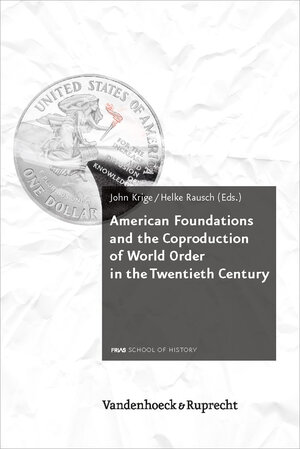
×
![Buchcover ISBN 9783525310434]()
American Foundations and the Coproduction of World Order in the Twentieth Century
herausgegeben von John Krige und Helke RauschThis volume studies the links between politics and science during the 20th century, based on the example of the large US foundations. If the 20th century can be regarded in many ways as the »American Century«, then the large US foundations such as Carnegie, Rockefeller and Ford played a major role in this development. And yet they weren´t simply stooges for official US power politics. The circumstances surrounding their actions were much more complicated and made great demands of the philanthropy of the day. This volume with articles in English and German shows the course of US philanthropy in Europe in the time between the world wars and following World War II; it demonstrates how Europe became the setting for continually new versions of the postwar political and scientific landscape.



